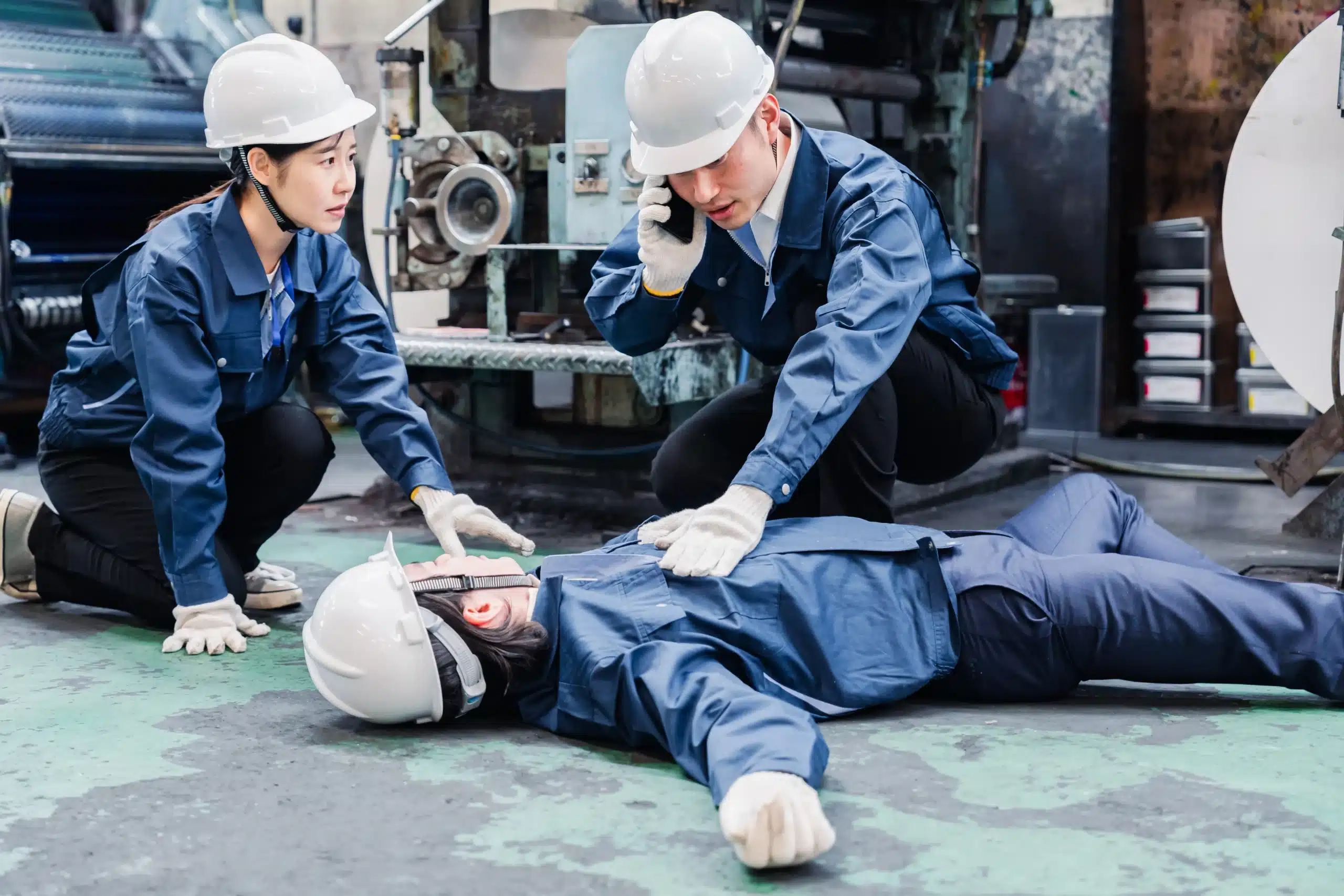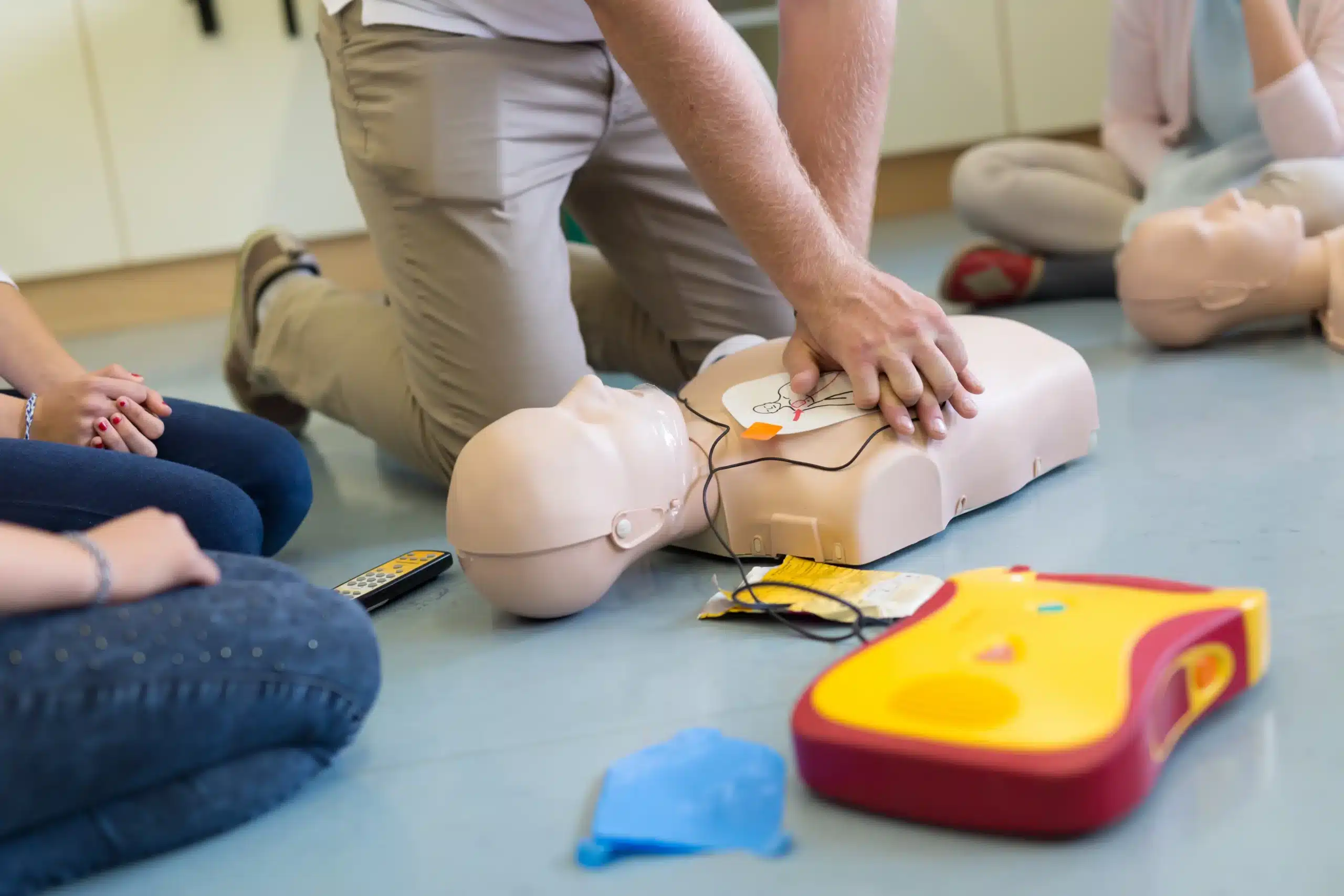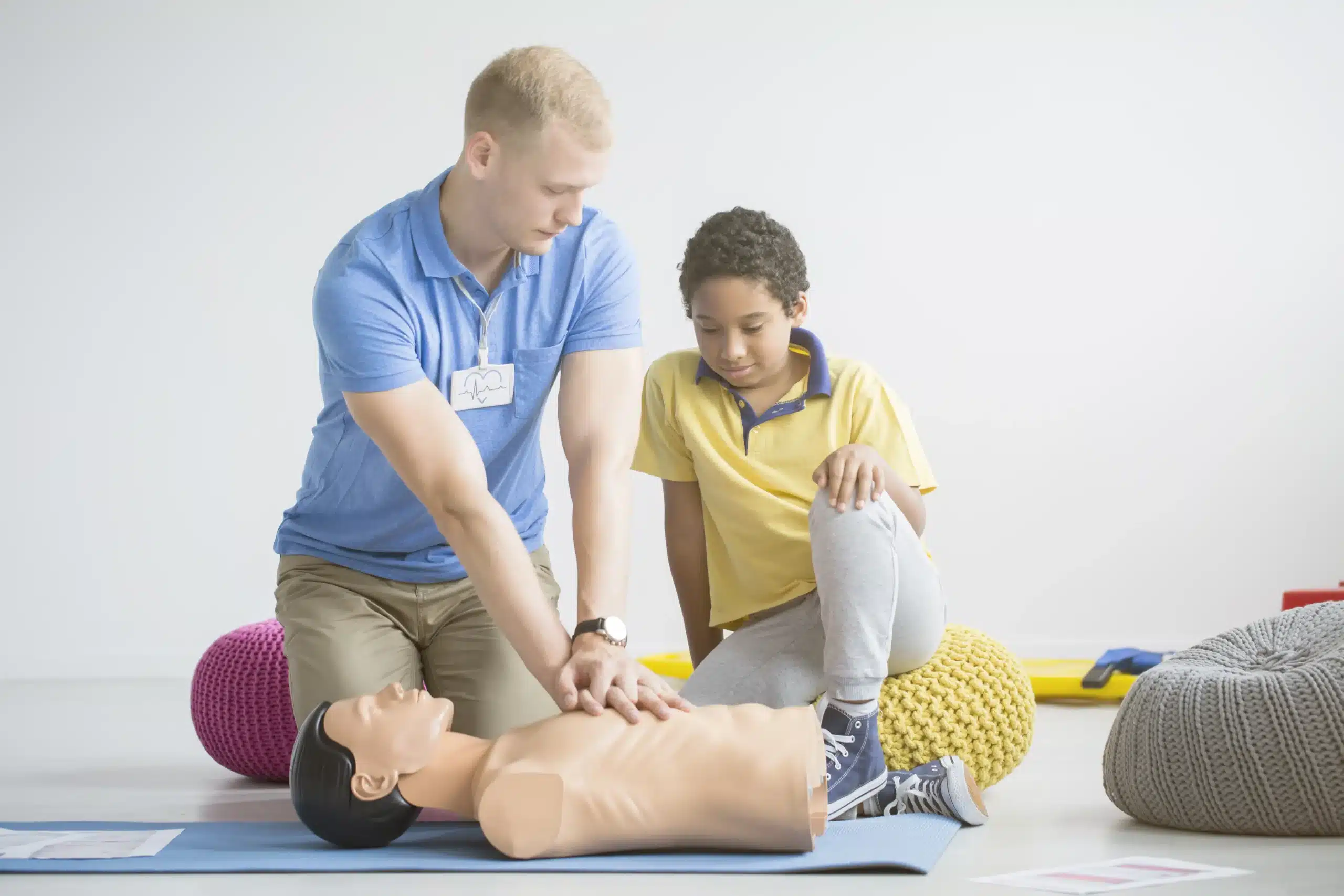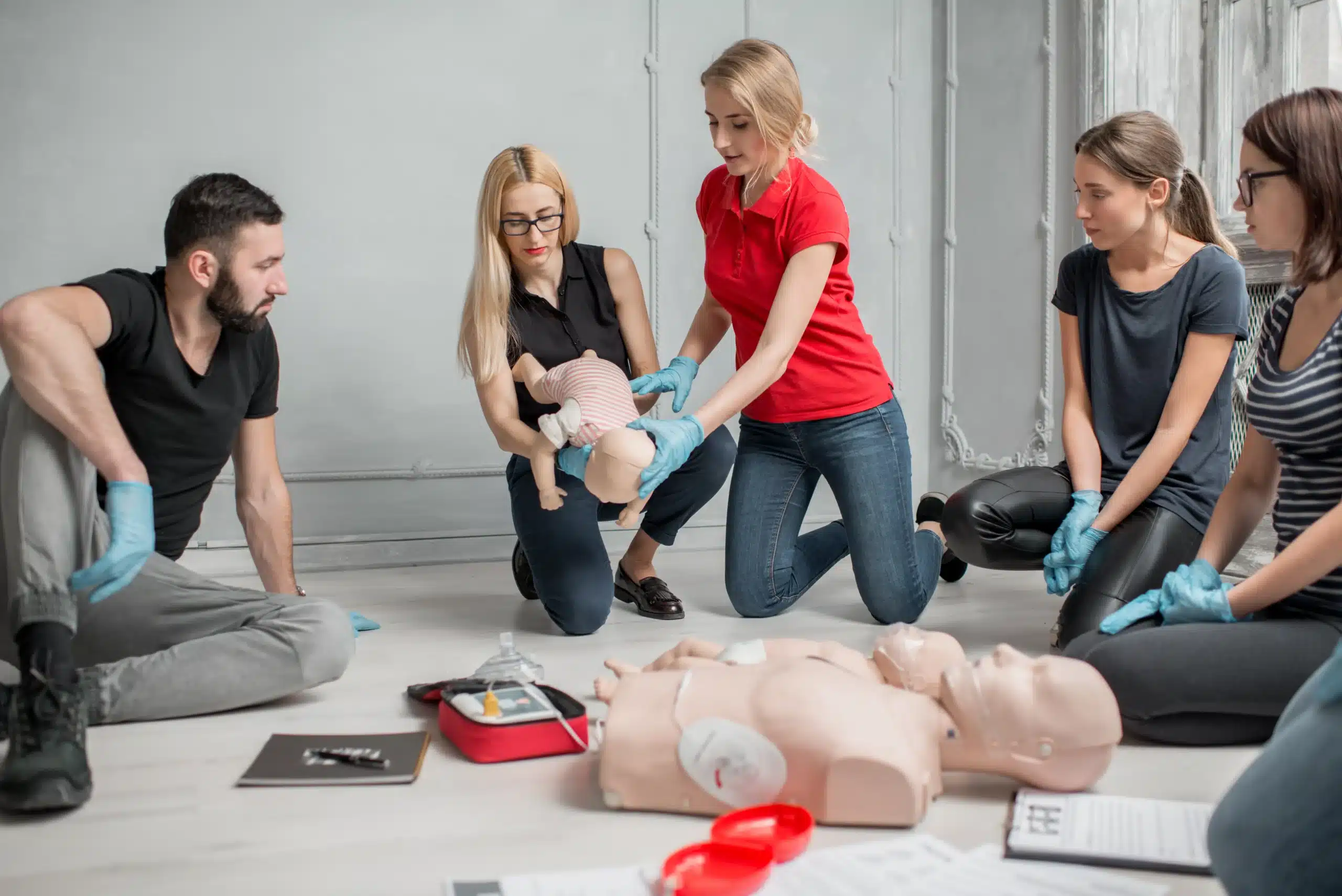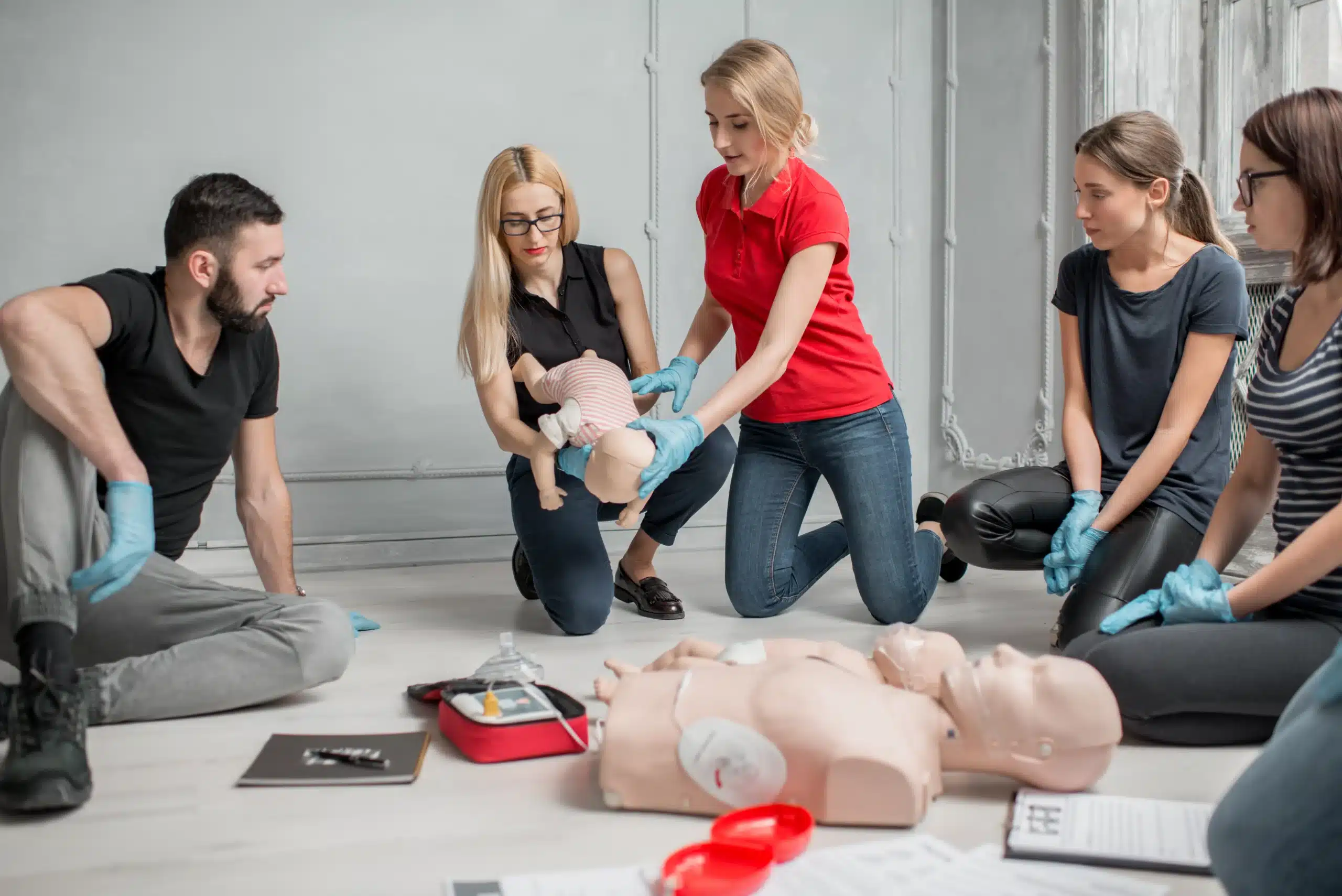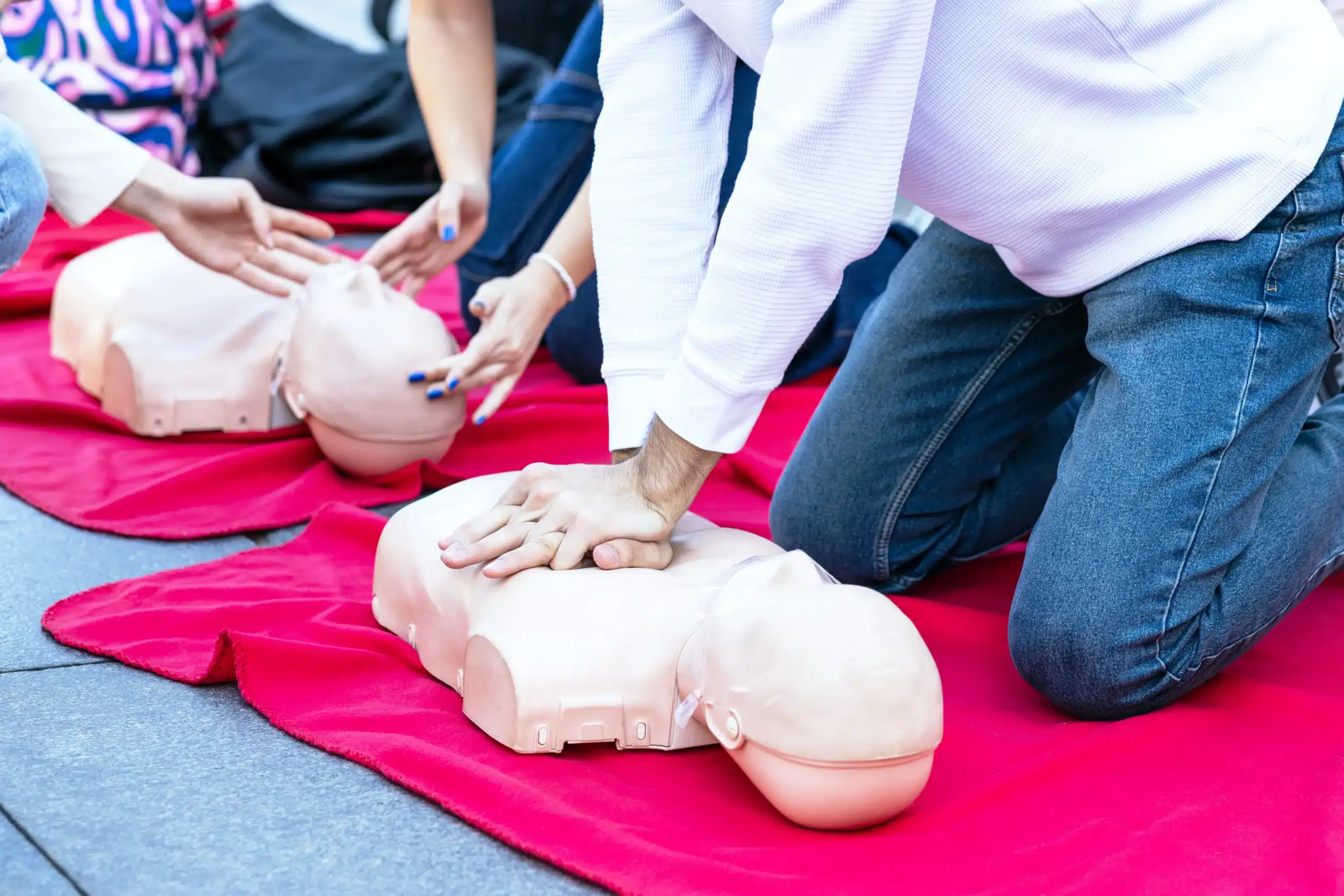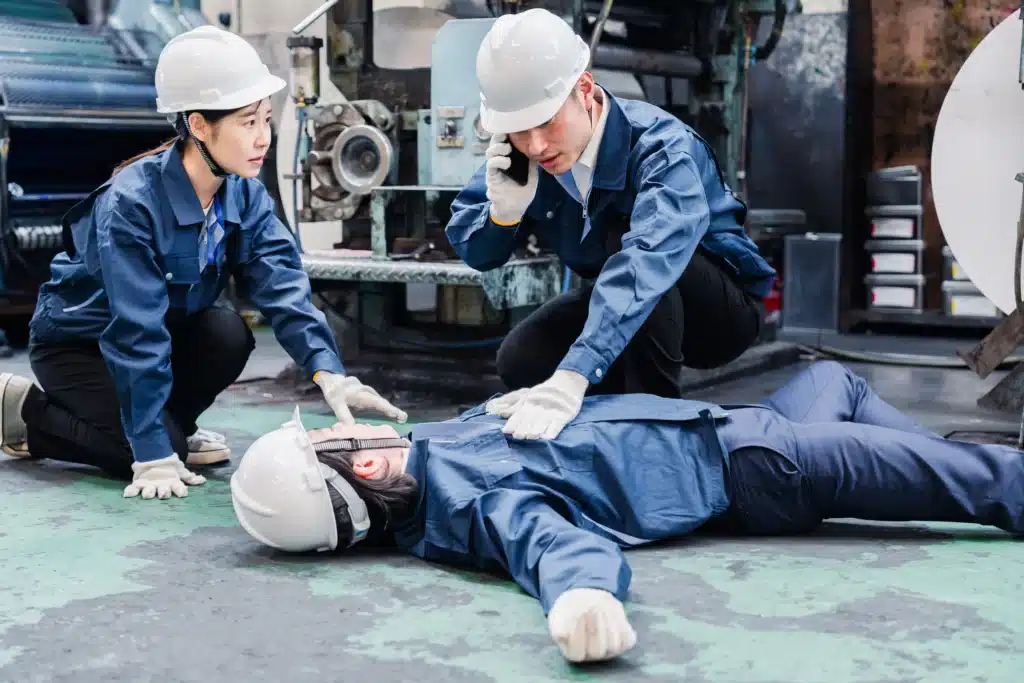Empowering yourself with life-saving skills is a rewarding endeavor. CPR certification equips you to respond confidently during medical emergencies, making a tangible difference in your community. This article focuses on CPR certification in Oakland, providing a practical guide to finding the right training program for you. We’ll explore the various benefits of becoming certified, the costs involved, and the different learning formats available. Whether you’re pursuing CPR certification for professional reasons or personal preparedness, this guide will provide you with the information you need to take the next step.
Key Takeaways
- CPR certification empowers you to make a difference: Whether for personal growth or career advancement, CPR training provides valuable skills to respond effectively in emergencies. It’s about being prepared and confident in your ability to help.
- Choosing the right CPR course involves key considerations: Think about your specific needs, preferred learning style (online, in-person, or blended), and budget when selecting a program. Research various providers and ask questions to find the best fit.
- Staying current with your CPR skills is essential: Recertification ensures you’re up-to-date with the latest guidelines. Explore convenient renewal options like the RQI program to maintain your skills and confidence.
What is CPR Certification and Why Does it Matter in Oakland?
CPR certification equips you with the skills to respond to medical emergencies. While you don’t technically need formal CPR certification to perform CPR, taking a course ensures you’re properly trained and confident in your abilities. This training empowers you to deliver immediate, potentially life-saving care while waiting for professional medical personnel. Think of it as a crucial link in the chain of survival, bridging the gap between the onset of an emergency and the arrival of paramedics. Learn CPR and become empowered to help in a crisis.
In a bustling city like Oakland, knowing CPR is especially valuable. With a diverse population and a range of potential emergency scenarios, having trained individuals throughout the community strengthens the city’s overall preparedness. Whether you’re a healthcare professional, a parent, a teacher, or simply a concerned citizen, CPR training provides you with the tools to make a real difference. Safety Training Seminars offers various CPR certification courses in the Bay Area, making it easy to find a program that fits your needs. For healthcare providers in Oakland looking to maintain their certifications, the American Heart Association’s RQI program offers a streamlined and efficient option. Learning CPR, whether for personal or professional reasons, equips you with skills that can truly impact lives. It’s about being prepared, being confident, and being ready to step up when it matters most. Explore CPR classes in Oakland and find the right course for you.
Where to Get CPR Certified in Oakland
Finding the right CPR certification course in Oakland depends on your needs and preferences. Here’s a rundown of reputable providers:
Safety Training Seminars
Safety Training Seminars offers a range of CPR courses to fit your schedule and learning style. They offer the American Heart Association RQI (Resuscitation Quality Improvement) program, a convenient option for healthcare professionals to renew their BLS, ACLS, and PALS certifications. Check their CPR and First Aid course calendar for classes in San Pablo, conveniently located near Oakland. They also offer an EMSA Child Care Health and Safety course, ideal for childcare providers. Contact them for more information.
American Red Cross
The Red Cross in Oakland offers CPR classes and certification taught by experts and designed for easy understanding. They offer in-person and blended learning (online and in-person) options for flexible scheduling.
CPR Certification Oakland
CPR Certification Oakland provides American Heart Association (AHA) certified CPR and First Aid classes. They emphasize small class sizes for personalized instruction and offer same-day certification cards.
Local Hospitals and Medical Centers
Many Oakland hospitals and medical centers offer CPR training and certification. These courses often focus on healthcare professionals, but some may be open to the public. Check with hospitals like Kaiser Permanente, Sutter Health, or Highland Hospital for their course schedules.
CPR Class Costs, Formats, and Time Commitment
Finding the right CPR class often involves balancing cost, convenience, and learning style. Let’s break down what you can expect regarding pricing, class formats, and the time commitment involved.
Average CPR Certification Costs
CPR certification costs in Oakland generally hover around $19.95, but prices can vary based on the provider and the specific course. This range allows you to find a class that aligns with your budget. Safety Training Seminars offers a low price guarantee to ensure you’re getting the best value.
Group Discounts and Package Deals
If you’re coordinating training for a group, many providers, including Safety Training Seminars, offer discounts for multiple enrollments. Bundling CPR training with other certifications like First Aid or BLS can also lead to savings. Check with your chosen provider about group discounts to maximize your training budget.
In-Person, Online, and Hybrid Class Formats
CPR classes come in several formats. Online courses offer a flexible introduction to CPR principles, but in-person training is crucial for mastering hands-on skills and building the muscle memory you’ll need in a real emergency. Some providers offer hybrid courses that combine online learning with in-person skills sessions. Consider which format best suits your learning preferences and schedule. Safety Training Seminars offers a variety of in-person CPR and First-aid courses in San Pablo.
Time Commitment for CPR Certification
Most CPR certification classes require a time commitment of roughly three hours. This timeframe provides ample opportunity to learn the material and practice the techniques effectively. Knowing the time commitment upfront helps you plan accordingly.
Benefits of CPR Certification
Knowing CPR can make a real difference in critical situations. It’s a valuable skill set with benefits that extend beyond the obvious. Whether you’re aiming for career advancement, increasing your personal confidence, or simply contributing to a safer community, CPR certification offers several advantages.
Career Advancement with CPR Certification
In many healthcare and related fields, CPR certification isn’t just suggested—it’s often a job requirement. For aspiring medical professionals, nurses, doctors, and other healthcare workers, having current CPR certification is frequently a prerequisite for employment. Even in professions where it’s not mandatory, such as teaching, coaching, or childcare, CPR certification demonstrates a commitment to safety and can give you an advantage. It shows employers that you’re prepared to handle emergencies and prioritize the well-being of those in your care. So, whether you’re just starting your career or looking to move forward, CPR certification can create opportunities.
CPR for Personal and Community Safety
Learning CPR empowers you to respond effectively during medical emergencies, not just at work, but also in your personal life. Imagine being equipped to help a loved one, a friend, or even a stranger during a critical moment. CPR skills enable you to provide immediate assistance while waiting for paramedics or other medical professionals. This quick action can significantly improve the chances of survival for someone experiencing cardiac arrest. By learning CPR, you contribute to a safer community.
Build Confidence in Emergencies
Knowing you can handle a medical crisis brings a sense of calm and confidence. CPR training gives you the knowledge and skills to take charge in stressful situations. It replaces uncertainty with a clear action plan, allowing you to react quickly and effectively under pressure. This increased confidence can extend beyond medical emergencies, helping you feel more prepared for any unexpected challenge.
Essential Skills for Healthcare Settings
For healthcare professionals in hospitals, clinics, or other medical settings, maintaining up-to-date CPR skills is essential. The American Heart Association RQI program offers a convenient and efficient way to stay current on your certifications, including BLS, ACLS, and PALS. These certifications are often essential for career advancement and demonstrate a commitment to providing excellent patient care. RQI ensures that healthcare providers have the skills and knowledge to respond effectively to cardiac arrest and other life-threatening emergencies.
Renewing Your CPR Certification
Keeping your CPR skills sharp is crucial for responding effectively in emergencies. Just like any important skill, CPR requires regular refreshing to stay up-to-date with the latest guidelines and techniques.
CPR Renewal Requirements
CPR certifications are typically valid for two years. To maintain your credentials and ensure you’re prepared to provide assistance when needed, you’ll need to recertify before your current certification expires. Most organizations, including the American Heart Association and the Red Cross, require a recertification course. This ensures you’re familiar with any updates to CPR procedures. You can find CPR classes and certification with the Red Cross in Oakland. For a convenient option closer to Richmond, Berkeley, and other nearby areas, check out the CPR renewal courses offered by Safety Training Seminars in San Pablo. They offer the American Heart Association certified courses and a low price guarantee.
Recertification Classes and Options
Thankfully, recertification classes are readily available and often fit conveniently into a single session. Many providers offer flexible scheduling, sometimes even providing same-day certification cards upon completion. For healthcare professionals seeking to renew their BLS, ACLS, or PALS certifications, the American Heart Association’s RQI program offers a streamlined and efficient recertification process. You can also explore other options for CPR Certification in Oakland. With various choices available, finding a recertification class that fits your schedule and learning preferences is straightforward. Safety Training Seminars also offers a convenient RQI program for healthcare providers looking to renew their certifications.
Choosing a CPR Certification Program in Oakland
Finding the right CPR certification program in Oakland depends on several factors. Take the time to research and choose a program that truly fits your needs and learning style.
Factors to Consider When Choosing CPR Certification
CPR training empowers you to save lives. Think about why you’re pursuing certification. Are you a healthcare professional needing AHA BLS certification? Or are you a parent wanting a basic CPR and First-aid course for your own knowledge? Your reason will influence the type of course you need. Also, consider your schedule and preferred learning environment. We offer classes throughout Northern California, serving over 60 cities.
Questions to Ask CPR Providers
Before committing to a program, ask potential providers some key questions. Inquire about the type of certification offered (AHA, Red Cross, etc.), the total cost (including any hidden fees), and their refund policy. It’s also wise to ask about the instructor’s experience and the student-to-instructor ratio. Contact us if you have questions about our programs.
Compare Top CPR Certification Providers
Oakland has several reputable CPR training providers. Safety Training Seminars offers a range of courses, including BLS, ACLS, and PALS, to meet different professional requirements. The American Red Cross also provides CPR and first aid training. Researching various providers helps you compare course content, schedules, and costs. Check out our low price guarantee.
CPR Training for Different Learning Styles
CPR training is available in different formats. Online courses offer flexibility, letting you learn at your own pace. However, in-person classes provide essential hands-on practice and personalized feedback. Blended learning, which combines online modules with in-person skills sessions, offers a nice balance. Consider which learning style works best for you. Our in-person classes are conveniently located throughout Northern California.
Common CPR Certification Myths Debunked
One common misconception is that online-only CPR certification is enough. While online courses offer valuable information, they often lack the hands-on practice you need to perform CPR effectively during a real emergency. Another myth is that CPR certification lasts forever. Most certifications are valid for two years and require renewal. Healthcare professionals can maintain their certification through our convenient RQI program.
Related Articles
- CPR & First Aid Classes in Oakland: Your Guide – San Pablo CPR Classes
- Online CPR Classes Oakland: Your Complete Guide – San Pablo CPR Classes
- BLS Classes in Oakland: Find the Right Course for You – San Pablo CPR Classes
- BLS for Healthcare Providers in Oakland: A Practical Guide – San Pablo CPR Classes
- Why CPR is Essential in Saving Lives
Frequently Asked Questions
What’s the difference between CPR and First Aid certification?
CPR focuses specifically on life-saving techniques for cardiac arrest and breathing emergencies. First Aid covers a broader range of injuries and illnesses, from cuts and burns to allergic reactions. While some courses combine both, they are distinct skill sets. It’s often beneficial to have training in both.
How do I choose the right CPR class for me in Oakland?
Consider your specific needs. Are you a healthcare provider needing to renew your BLS certification? Or are you looking for a basic community-level CPR course? Think about your schedule, preferred learning style (online, in-person, or blended), and location. Compare different providers like Safety Training Seminars, the American Red Cross, and local hospitals to find the best fit.
Is online-only CPR certification sufficient?
While online CPR courses offer a convenient way to learn the basics, they typically don’t include the hands-on practice and in-person evaluation required for proper certification by organizations like the American Heart Association or the Red Cross. Hands-on training is essential for developing the muscle memory and confidence needed to perform CPR effectively in a real-life emergency.
How much does CPR certification cost, and are there any discounts?
CPR certification costs vary depending on the provider and the type of course. Expect to pay somewhere in the range of what’s typical for your area, but always check with specific providers for their pricing. Many offer discounts for group registrations or package deals that combine CPR with First Aid or other certifications.
How often do I need to renew my CPR certification?
Most CPR certifications are valid for two years. Recertification involves taking another course to refresh your skills and ensure you’re up-to-date on the latest guidelines. Check with your certifying organization for specific renewal requirements. Some organizations offer streamlined renewal programs like the American Heart Association’s RQI program for healthcare professionals.
